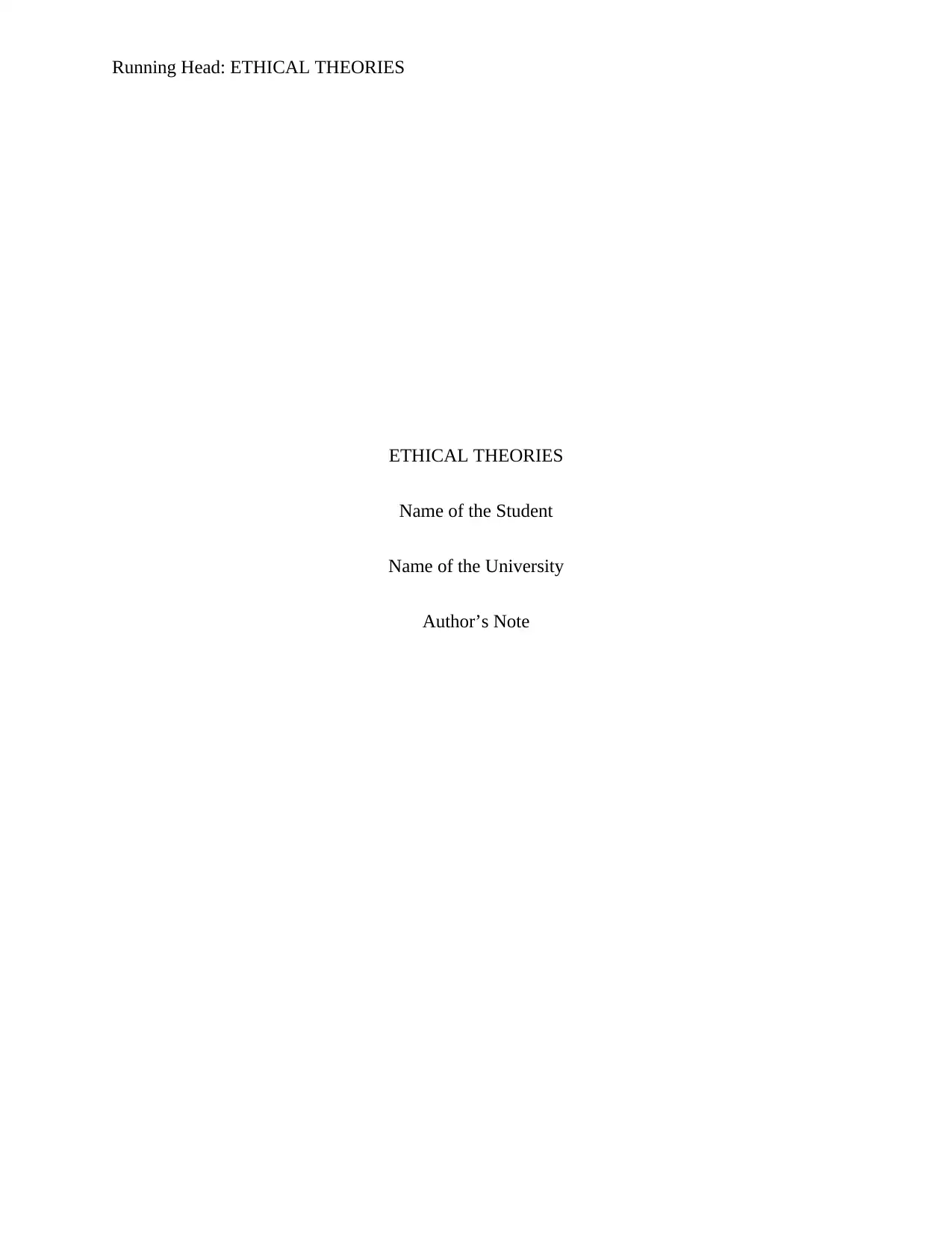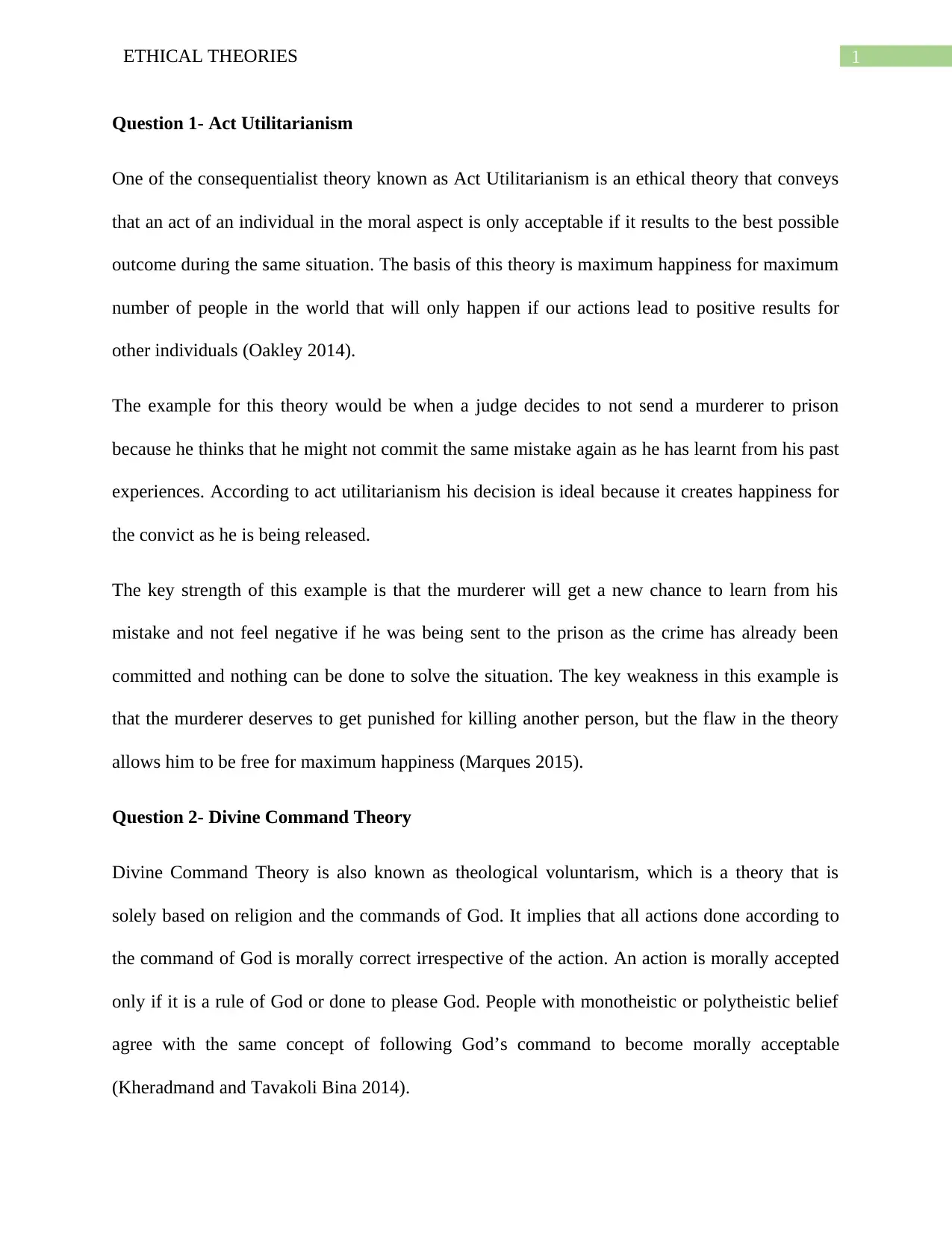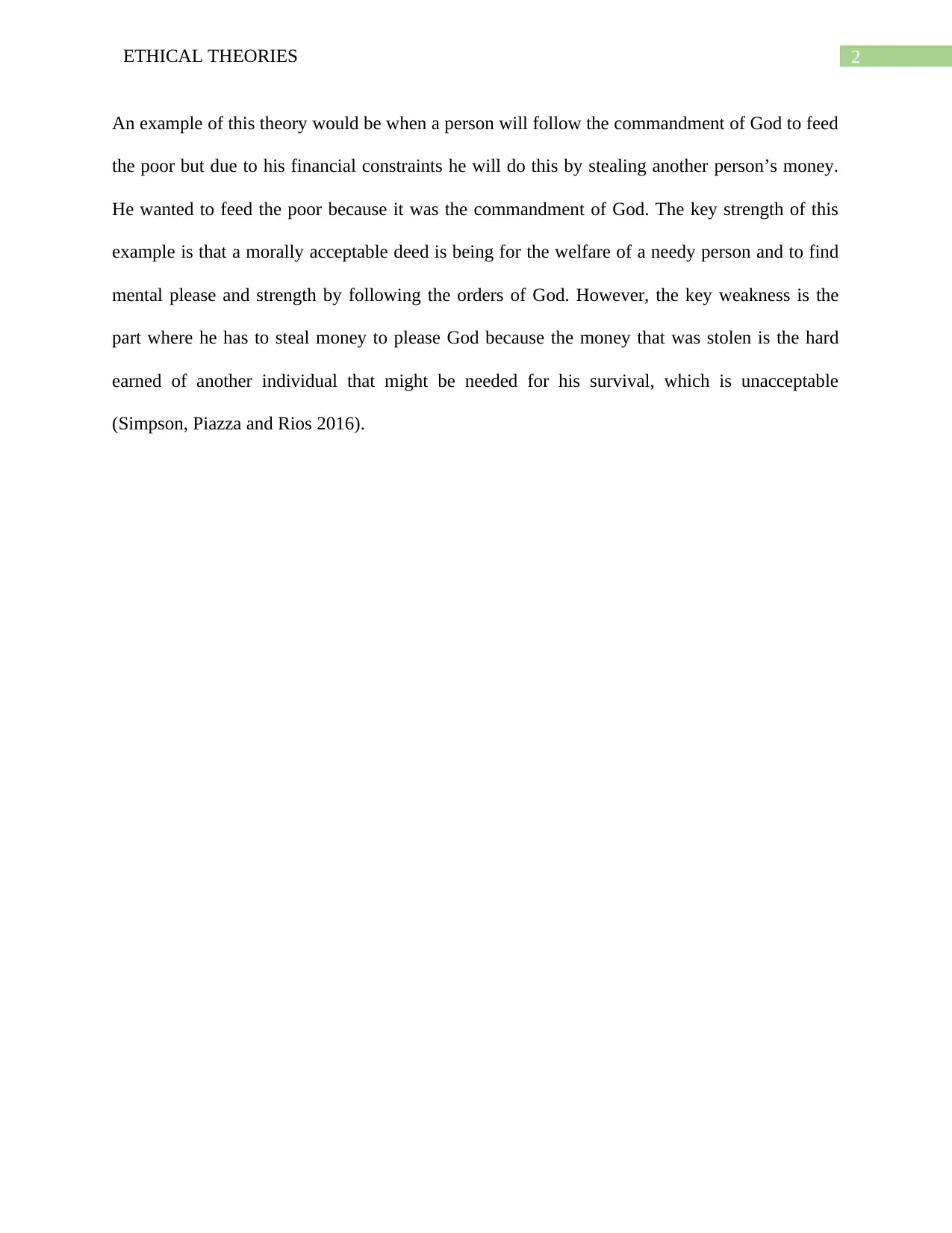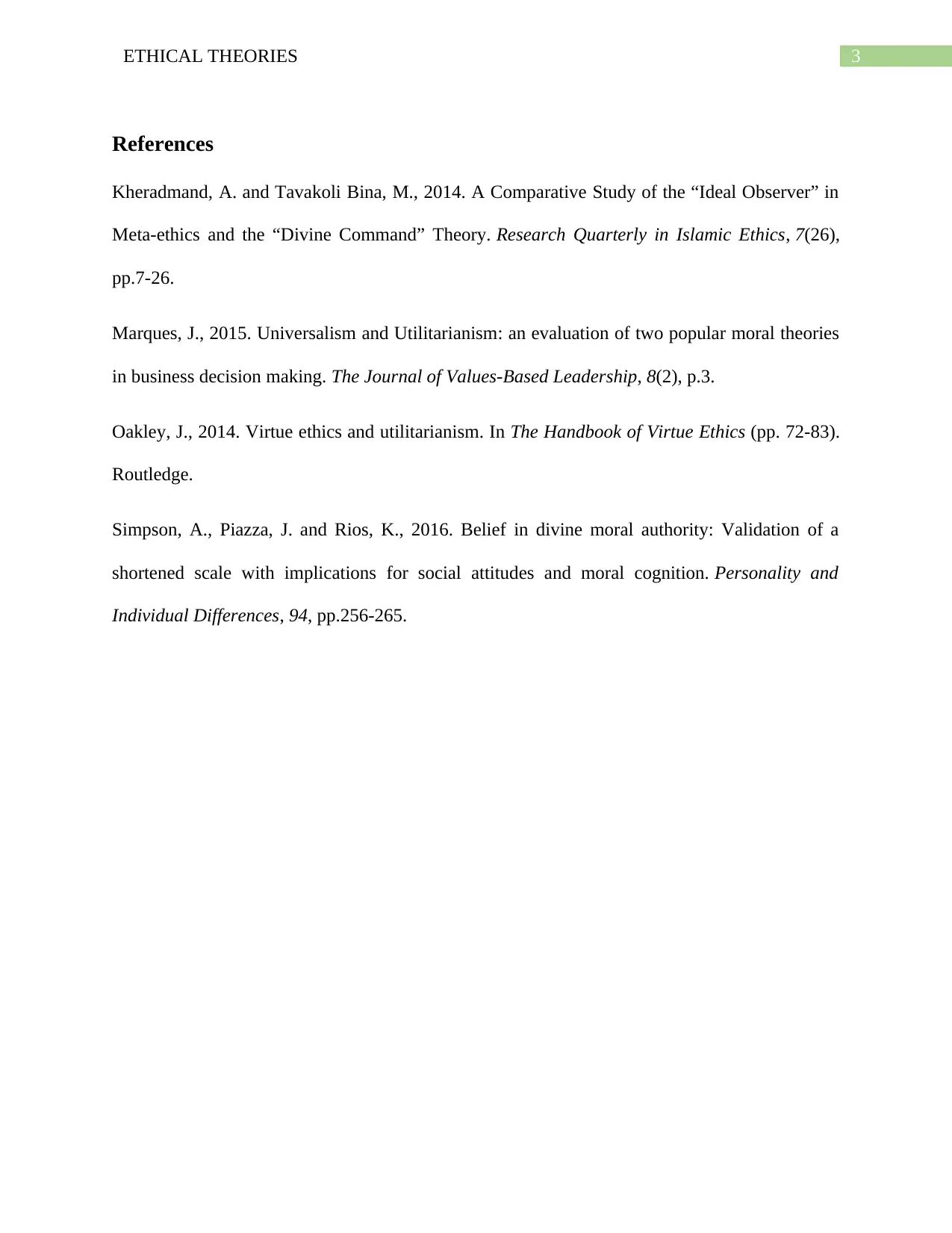Essay: Comparing Utilitarianism and Divine Command Theory in Ethics
VerifiedAdded on 2022/08/15
|4
|635
|17
Essay
AI Summary
The essay compares two major ethical theories: Utilitarianism and Divine Command Theory. It begins by explaining Utilitarianism as a theory that promotes actions that maximize overall happiness, and it highlights the strengths of this concept and its weaknesses. In the second part of the essay, the author explains the Divine Command Theory and its role in shaping ethical decisions. The essay also presents the strengths and weaknesses of this theory, offering examples to illustrate the concepts. The essay concludes with an analysis of both theories, providing a valuable perspective on moral decision-making and the role of ethics in daily life. The paper draws on the key concepts of each theory to highlight the importance of making informed decisions and understanding how different ethical frameworks can shape our perspectives.
1 out of 4








![[object Object]](/_next/static/media/star-bottom.7253800d.svg)